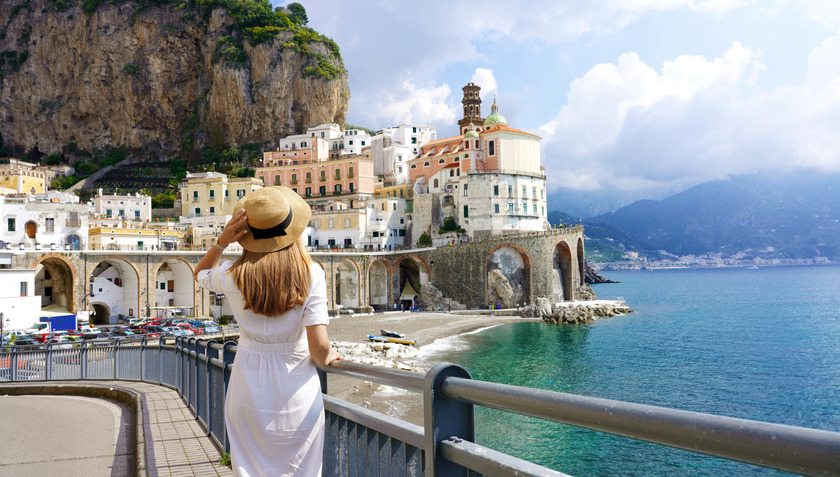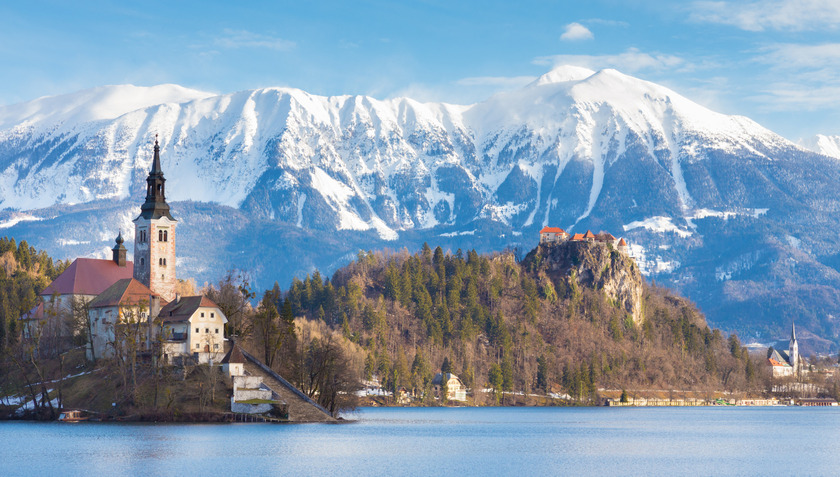The global economy is grappling with a complex set of variables, from geopolitical conflicts and the slowdown of the Chinese economy to climate change. Against this backdrop, US President Donald Trump has introduced a series of tariffs that could disrupt the decades-old order of international trade.
Among the policies announced by President Trump in his first month in office was a plan to impose reciprocal tariffs on trading partners that tax American goods. This move by Trump is an expansion of the trade war 2.0 that he launched in his second term. Not only does it make the production and business operations of companies in the US and other countries more precarious, but this war – especially the reciprocal tariffs – also poses many challenges to the global economy and particularly to the tourism industry.

The strengthening US dollar, Canadians boycotting travel to the US and shifting to Europe, have benefited the continent's tourism industry.
According to a survey by Flight Centre, an Australia-based travel service company, an increasing number of Canadians have canceled previously planned holidays in the US and instead rebooked their trips to European countries.
"One of our long-time customers canceled a trip to Arizona, USA, and took her family to Portugal instead," a company representative said.
Canadian customs officials say the number of passengers arriving in the US at airports has decreased. Many airlines are also cutting flights to the US. Air Canada will reduce the number of flights to Florida, Las Vegas, and Arizona starting in early March.

Following US President Donald Trump's threats to impose tariffs on several countries and global economic instability, Canadians are increasingly boycotting US travel and choosing Europe as an alternative destination.
The appreciation of the US dollar not only makes goods and services in the US more expensive for Canadians, but also diminishes the appeal of traditional tourist destinations like Florida or California. Instead, Europe with its weaker euro has become a more cost-effective option.
This shift in travel trends has brought significant benefits to the European tourism industry. Countries such as France, Italy, and Spain have seen a substantial increase in the number of tourists from Canada.
While Canadians are turning their backs on travel to the US, across the Atlantic, Americans are eagerly planning their dream trips to Europe. The strengthening US dollar not only gives American tourists more money to spend but also provides opportunities to experience luxury services at more affordable prices.

Canadian customs officials say the number of passengers arriving in the US at airports has decreased. Many airlines have also cut flights to the US.
According to economic experts, the US dollar is expected to continue its upward trend against other currencies worldwide. Furthermore, threats of US tariffs against many countries are also predicted to weaken strong currencies around the world, such as the euro.
The combination of these two factors will create a "paradise" for American tourists in Europe. American travelers will not only enjoy longer trips and more luxurious services, but also have the opportunity to explore new destinations and experience unique cultures at a lower cost than before. The rise of the US dollar has created a "flood" of American tourists to Europe, bringing benefits not only to the European tourism industry but also to American tourists themselves. In the future, as the US dollar continues to dominate the currency market, this trend is expected to grow even stronger.

Americans are also planning to travel to Europe thanks to the advantage of a stronger US dollar.
Craig Sauers, an American who has lived in Tbilisi, Georgia since 2016, has no plans to return home anytime soon due to concerns about inflation making prices in the US increasingly expensive. However, he still plans to fly back occasionally to visit his family.
Jared Batzel, a former U.S. military officer living in Madrid, Spain, says many of his colleagues came to the U.S. to find work but later moved to Europe or returned home to start their own businesses.

Many Americans living in Europe are saying they will stay rather than return home to face the high cost of living.
Canada, which for many years was the leading source market for tourists to the US, has now turned its back on Hawaii. The main reason stems from trade tensions and the US government's tariff policies, making Canadians feel uncomfortable and prompting them to switch to other destinations.
With the loss of a large number of Canadian tourists, who had been the leading source market for the US for many years, many tourism-dependent destinations like Hawaii are beginning to worry. Many local businesses, from hotels and restaurants to souvenir shops, have seen significant revenue declines. Hawaiians, who rely heavily on tourism, are extremely concerned about the current situation. They hope that international tourists will soon stop canceling trips to the island and that the Hawaiian tourism industry will recover quickly.
Canadian airline WestJet has also not escaped the "bad luck." Demand for Hawaiian travel to the airline has dropped by 25% in just one month, an alarming figure. However, whether the Hawaiian tourism industry will truly improve as locals hope remains an open question. Only time will tell.

 VI
VI EN
EN


































